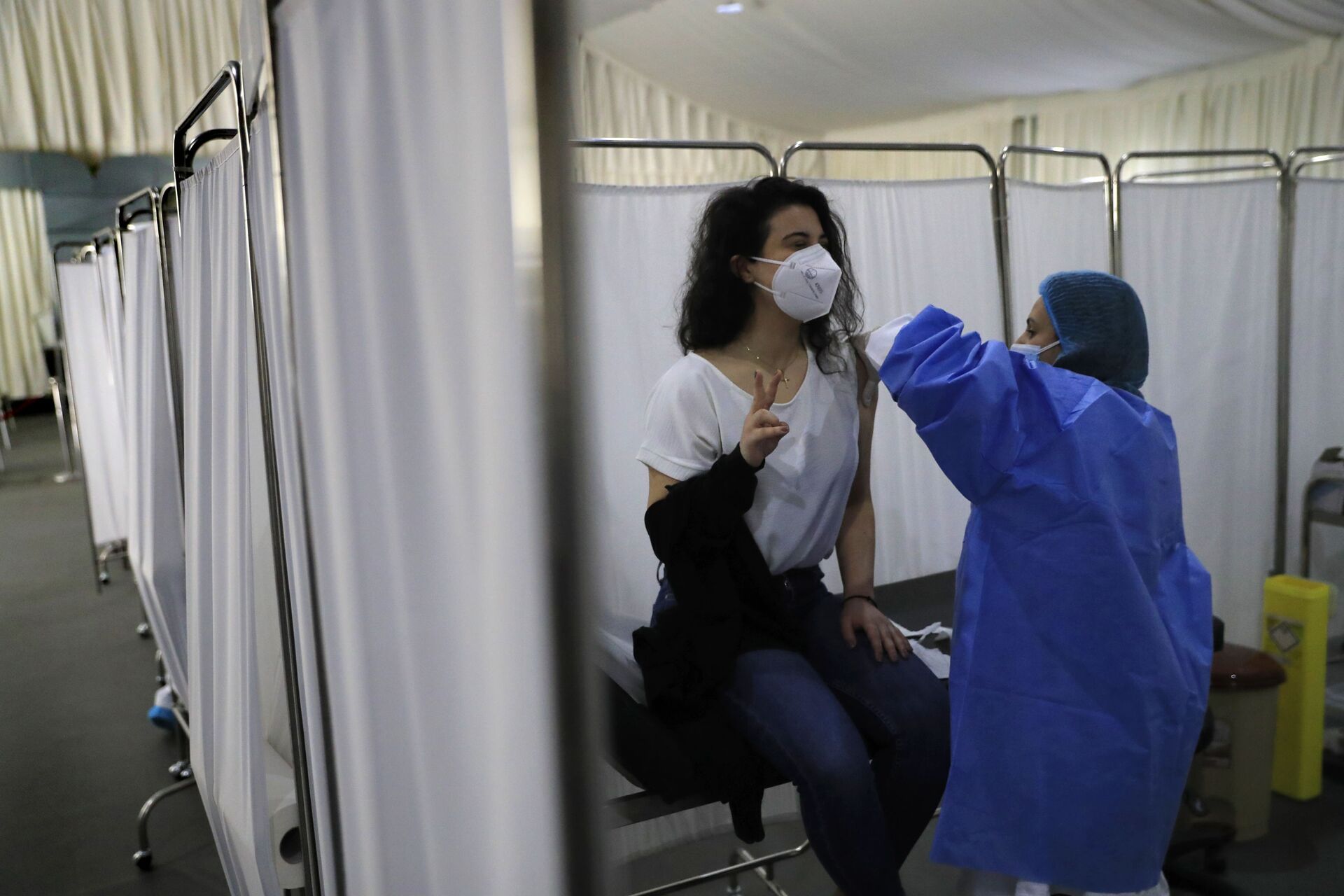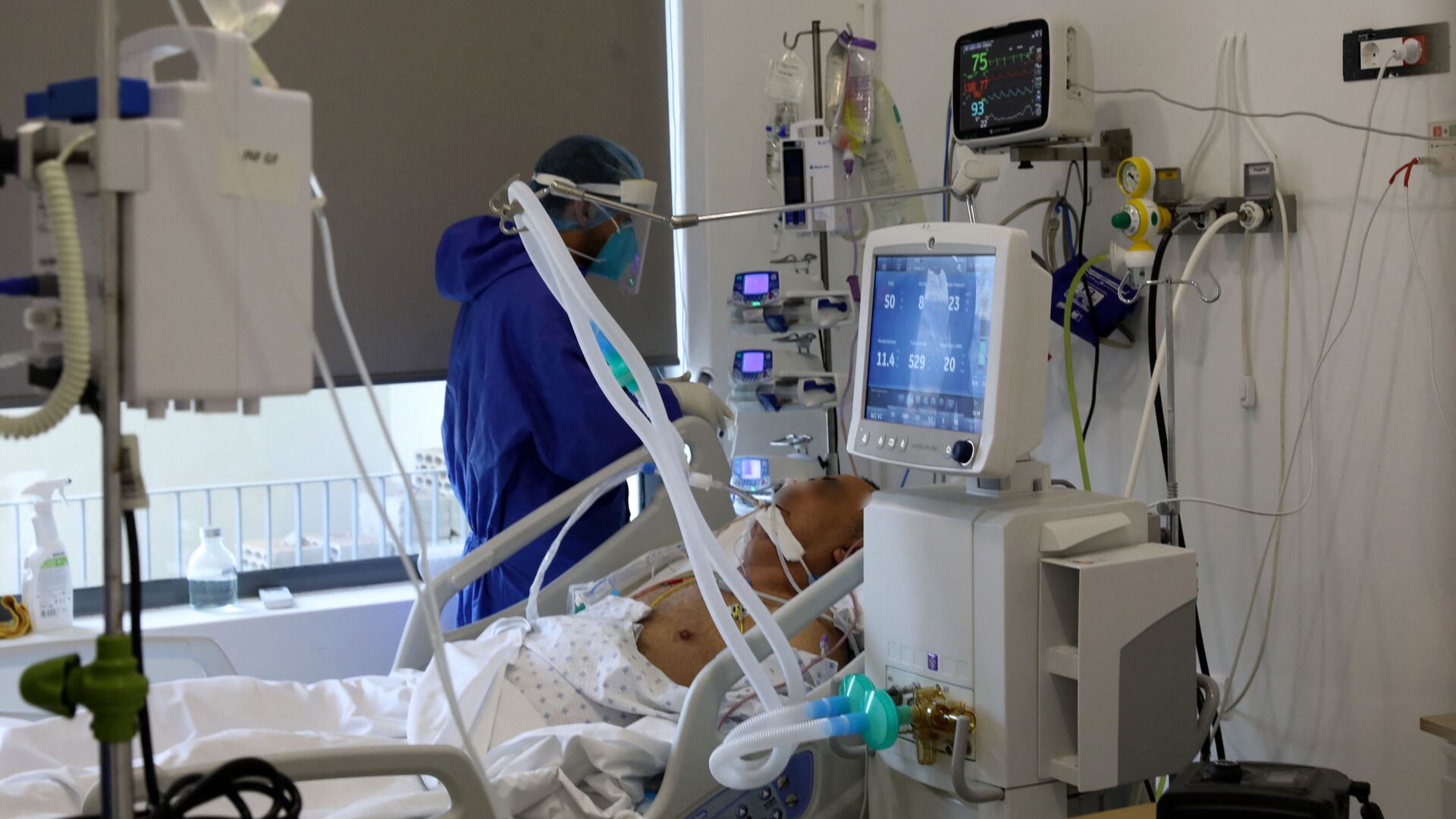Lebanon, a nation of nearly seven million people, has been witnessing a spike in COVID-19 cases in recent days.
Last week, the total number of infections exceeded half a million, while the death toll from the virus reached 6,778.
Jabs Not Flowing
But while the numbers keep climbing, the mass vaccination drive that kicked off in mid-February is sputtering; and Dr Eid Azar, an infectious disease specialist at Beirut's Saint George Hospital, says the moderate pace can largely be attributed to the low flow of the jab supply.
"We have been vaccinating 40,000 to 50,000 people a week - this is approximately the amount [of jabs] we are getting. The plan started with 75-year-olds and medical workers. Then it was expanded to 65-year-olds and above. The idea is that everyone, who registered to get a jab, will do so by the end of May".
At the current pace, Lebanon has only vaccinated 2.2 percent of its population, which translates into approximately 300,000 doses having been administered so far.

In a bid to improve those numbers and speed up the vaccination drive, Lebanon's private sector has stepped in, reportedly importing one million doses of the Russian vaccine Sputnik V.
As of the beginning of April, only 50,000 doses have reached Lebanon. The Arab nation has also received nearly 225,000 vials of the Pfizer vaccine and around 34,000 jabs of AstraZeneca that were used to vaccinate teachers and people aged 55 and above.
Game Changer?
Azar says the situation is likely to improve in the upcoming months. In April, Lebanon is to receive 100,000 doses of the Russian-made vaccine Sputnik V and in June, the Arab nation is expected to see 1.5 million doses of Pfizer and another 600,000 jabs of Sputnik V.
"It will be a game changer", he says, talking about the anticipated supplies. But for Lebanon to reach a herd immunity, millions more will be needed, and that requires cash that the government does not have.
The country's economy has been faltering for years but the situation deteriorated in 2019, pushing thousands of Lebanese citizens onto the streets. Back then, it was estimated that Lebanon needed $20-$25 billion to re-emerge from its fiscal crisis.
Then came the deadly Beirut explosion of August 2020 that shattered what had already been a fragile situation, while the raging coronavirus and the restrictive measures taken to curb its spread resulted in high rates of unemployment and poverty.
According to reports, 55 percent of the country's population live in poverty, a figure that has almost doubled since 2019.
The Lebanese authorities want to put an end to the current crisis. They'd like to see the economy opening up and life getting back on track. But for that to happen Lebanon needs to hit herd immunity and that can only be achieved if several conditions are met, says Azar.
"First, we need to ensure that the supply of vaccines will continue to flow. And second, we need to make sure that those, who haven't registered to get a jab yet, do so".
Will that return a sense of normalcy to Lebanon? The expert remains hopeful, but reserved in his estimations.
"It will depend on how fast we will finish the vaccination process and how effective it will be. If COVID-19 pops up again and causes more problems, it will be difficult to assess how fast we will get back on track".




